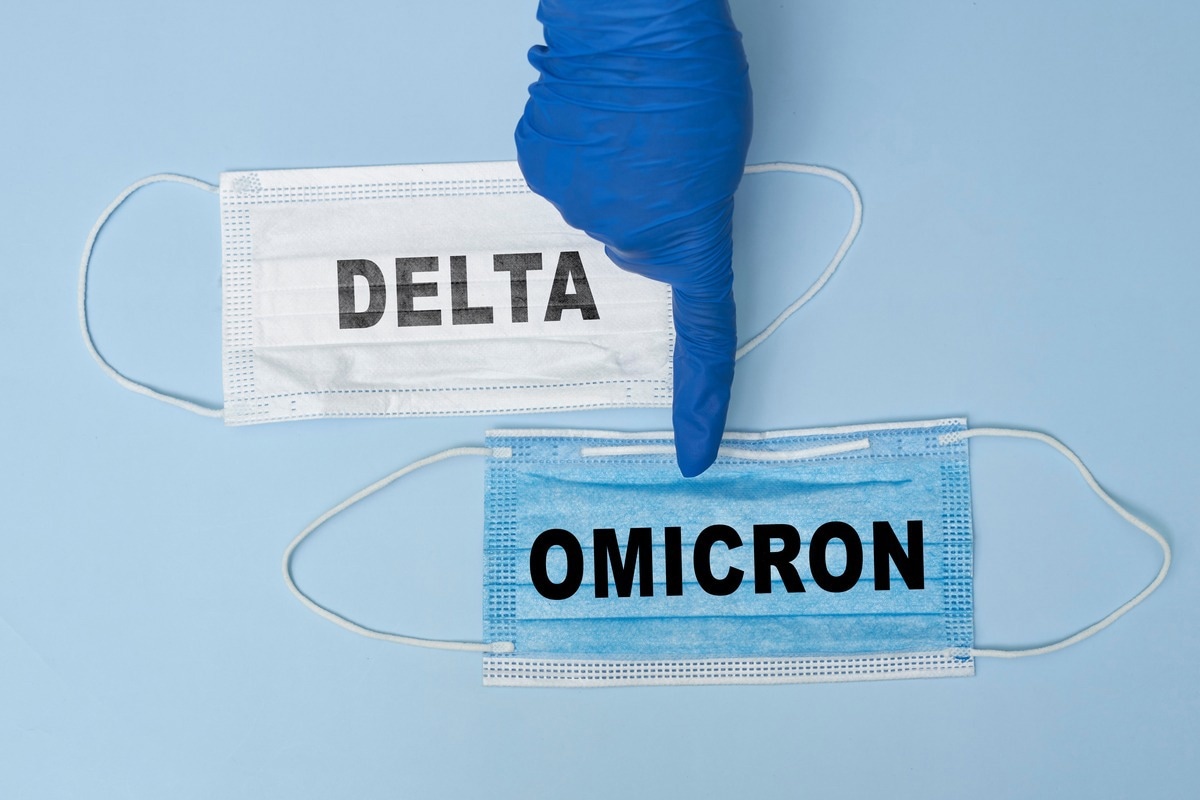In a recent study posted to the medRxiv* preprint server, researchers assessed the differences between the generation-interval distributions and incubation periods of the severe acute respiratory syndrome coronavirus 2 (SARS-CoV-2) Delta and Omicron variants.
 Study: Inferring the differences in incubation-period and generation-interval distributions of the Delta and Omicron variants of SARS-CoV-2. Image Credit: G.Tbov/Shutterstock
Study: Inferring the differences in incubation-period and generation-interval distributions of the Delta and Omicron variants of SARS-CoV-2. Image Credit: G.Tbov/Shutterstock

 *Important notice: medRxiv publishes preliminary scientific reports that are not peer-reviewed and, therefore, should not be regarded as conclusive, guide clinical practice/health-related behavior, or treated as established information.
*Important notice: medRxiv publishes preliminary scientific reports that are not peer-reviewed and, therefore, should not be regarded as conclusive, guide clinical practice/health-related behavior, or treated as established information.
Estimation of the differences between SARS-CoV-2 variants with respect to the serial interval, incubation periods, and generation interval distributions is essential to understanding the transmission of these variants. However, the effect of epidemic dynamics is mostly overlooked while estimating the duration of infection and its transmission.
About the study
In the present study, researchers analyzed the serial interval data as well as the incubation periods that describe the transmission patterns corresponding to SARS-CoV-2 Omicron and Delta variants.
The team analyzed time series related to the reported coronavirus disease 2019 (COVID-19) cases and the number of SARS-CoV-2 variants found from 29 November 2021 to 30 January 2022 in the Netherlands. Pairs of infector-infectee were recognized through contact tracing while data related to the symptom onset was collected from the national surveillance database. The serial intervals were subsequently calculated by taking into account the difference between the dates of symptom onset corresponding to the infectee and the infector. One infectee was randomly chosen for each infector to prevent any dependence between the two serial intervals.
Furthermore, publicly available data were aggregated according to the duration of the serial interval and did not include information like symptom onset dates, exposure dates, or age. The data aggregated comprised a total of 2,529 transmission pairs which were further divided as per the presence or absence of the SARS-CoV-2 spike gene target failure (SGTF), the week in which the symptom onset date of the infector was, and whether the transmission was incident within- or between- households. The team combined information reported between 13 December and 26 December 2021 which were divided into weeks 50 and 51. In the study, the transmission pairs who did and did not display SGTF were termed Omicron and Delta pairs, respectively.
Incubation period data were obtained from a total of 513 individuals which included 255 Delta and 258 Omicron cases who reported onset of symptoms between 1 December 2021 and 2 January 2022. The team took into account the growth rates in order to accurately evaluate the generation-interval distributions and incubation period of the Omicron and Delta variants. The growth rates for the two variants were estimated by first calculating the total number of COVID-19 cases caused by each variant by multiplying the number of cases reported per week by the proportion of Omicron and Delta variants detected.
Incubation periods were estimated in two distinct ways: forward and backward. The team calculated forward incubation periods from a group of patients who were infected at almost the same time. On the other hand, backward incubation periods from a group of patients who displayed symptoms at almost the same time.
Results
The study results showed that the number of SARS-CoV-2 infections infected with the SARS-CoV-2 Delta variant continued to decline throughout the source of the study while the time-varying growth rates reduced from almost -0.01 per day to -0.09 per day by 16 January 2022. The growth rate subsequently increased to -0.04 per day by 31 January 2022. The team noted that the variations in the growth rate coincided with the beginning of the lockdown regulations on 19 December 2021 and their relaxation from 15 January 2022. Furthermore, the differences in the growth rates between the Omicron and Delta variants reduced over time.
When the growth rate differences were accounted for, the Delta and the Omicron variants were found to have comparable incubation-period distributions with an average of 4.1 days for the Delta variant and 4.2 days for the Omicron variant. Furthermore, the difference between the average forward and backward incubation periods was 7% and -22% bias for the Delta and Omicron variants, respectively.
In the case of within-household transmission pairs, the Omicron variant displayed a shorter average serial interval of 3.1 days as opposed to that of the Delta variant which had an interval of 3.7 days. Accounting for the growth rate variations revealed that the mean forward generation interval was 3.0 days for Omicron and 3.8 days for Delta. On the other hand, between-household transmission pairs showed that the Omicron variant had an average serial interval of 3.0 days while the Delta variant had an interval of 3.3 days.
Conclusion
Overall, the study findings showed that the SARS-CoV-2 Omicron infections had similar incubation periods but shorter generation intervals than Delta infections. The researchers believe that surveilling the changes in the important epidemiological parameters related to SARS-CoV-2 evolution is essential in estimating its future dynamics.

 *Important notice: medRxiv publishes preliminary scientific reports that are not peer-reviewed and, therefore, should not be regarded as conclusive, guide clinical practice/health-related behavior, or treated as established information.
*Important notice: medRxiv publishes preliminary scientific reports that are not peer-reviewed and, therefore, should not be regarded as conclusive, guide clinical practice/health-related behavior, or treated as established information.
Journal reference:
- Preliminary scientific report.
Sang Woo Park, Kaiyuan Sun, Sam Abbott, Ron Sender, Yinon M. Bar-On, Joshua S Weitz, Sebastian Funk, Bryan Grenfell, Jantien A. Backer, Jacco Wallinga, Cecile Viboud, Jonathan Dushoff. (2022). Inferring the differences in incubation-period and generation-interval distributions of the Delta and Omicron variants of SARS-CoV-2. medRxiv. doi: https://doi.org/10.1101/2022.07.02.22277186 https://www.medrxiv.org/content/10.1101/2022.07.02.22277186v1